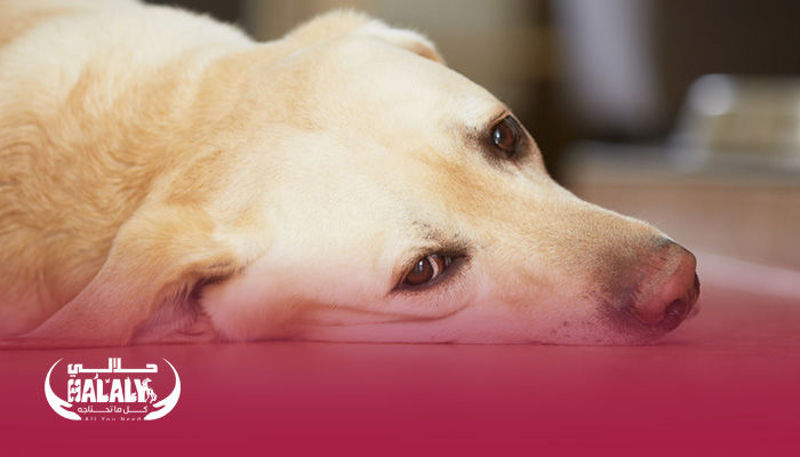Have you moved houses recently? Got a new baby or a new pet? Traveled for a long period of time? If you did any of the above and noticed that your dog is not its playful energetic self but rather withdrawn, then there is a good probability that your dog is depressed.
Yes, it’s true. Dogs are capable of suffering from depression and anxiety as they are intelligent creatures who, like humans, experience a range of emotions. And, depression in dogs isn’t so different from depression in people. But do not worry; though it is not uncommon for pets to feel the blues, they rarely suffer from long-term depression. Depression in dogs can be triggered by a whole variety of different things, as we mentioned, a major change in a dog's family surroundings such as introducing a new baby, spouse or pet or it could be an environmental change, such as moving home. Also, a distressing event, such as the loss of a pet companion or owner could trigger anxiety and depression, or the dog could simply feel empathy for an owner who is depressed or unhappy.
So, how to tell whether your dog is feeling down? What are the symptoms? Well, Dog depression symptoms are similar to those in people from withdrawing themselves from social situations to being quieter than normal. Some of the tell-tale signs your dog has depression include...
1. Exhibiting low activity levels.
2. Loss of interest in the things they once enjoyed.
3. Change eating habits, often eating substantially less (or not at all).
4. Change sleeping habits, sleeping more.
But be aware that these symptoms also can mean the dog has a medical problem, so the first course of action should always be a full checkup by a veterinarian. A pet that mopes around and no longer wants to go for walks could simply have pain from arthritis. It is important to check that these symptoms aren't happening due to a physical ailment before anything else.
However, there are also other Symptoms that are more of an indication of dog depression such as:
1. Showing signs of anxiety or aggression through sporadic howling or whining.
2. Excessive licking, especially to their paws, and/or Flattening of the ears.
3. Less interaction with other dogs.
4. Regression in-house and behavioral training.
5. Barking more or being hyperactive
If your dog is suffering from depression do not fret, most dogs bounce back from depression within a few days to a few months, you just need to keep them engaged, do more of the things they like to do, and get them a little more exercise, offer them more attention and reward them when they show some signs of happiness, and they should be fine. Sometimes, if the dog is depressed because of the loss of a companion, getting another pet can help.
It is also good to remember that the best dog food for depression will contain healthy ingredients and provide a balanced diet to make sure they have all the nutrition they need to stay healthy mentally and physically. Quality nutrition that includes natural vitamins and minerals like B-12 and choline is vital for healthy hormone production and brain function, which will help to improve your dog’s mood and overall well-being.























































